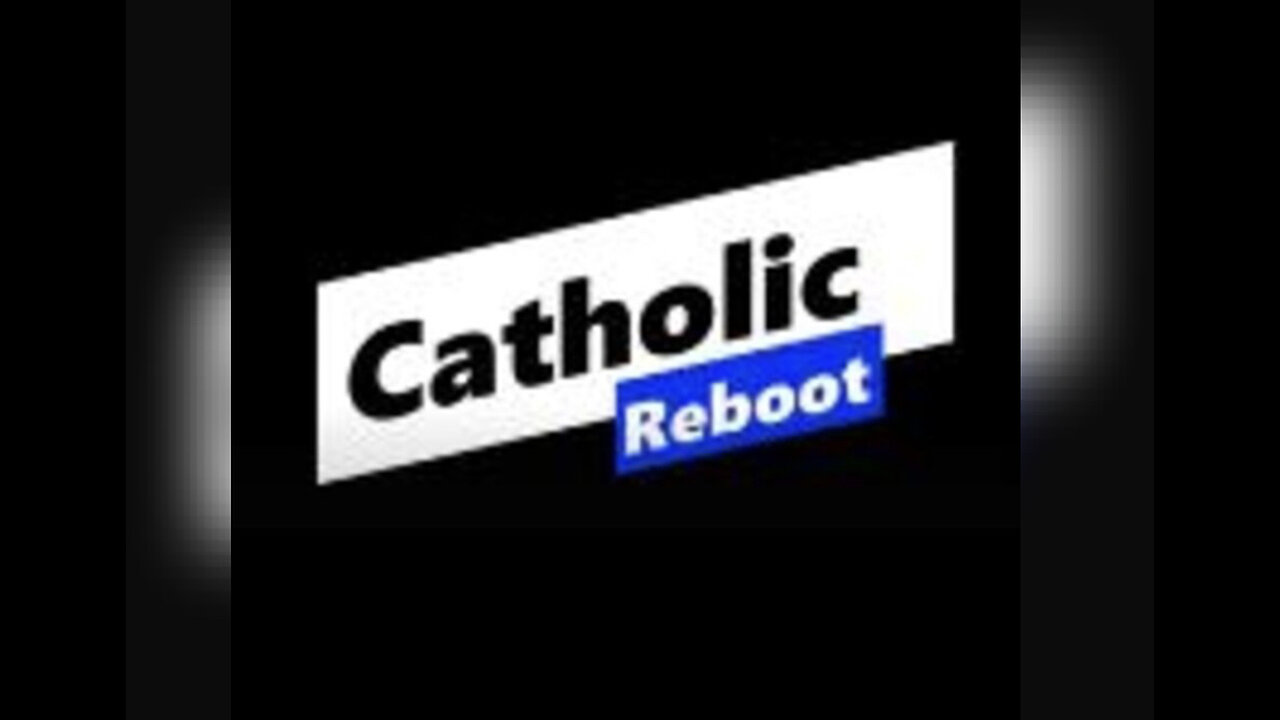Premium Only Content

Episode 2213: Books of the Bible - Sirach (Ecclesiasticus)
Sirach (Ecclesiasticus)
The Book of Sirach, also known as Ecclesiasticus,(EZ-CLEE-E-ASTI-CUS is a work from the Wisdom literature of the Old Testament. It is included in the Catholic and Orthodox canons but is considered apocryphal by most Protestant traditions. When something is described as "apocryphal," it typically means that it is of doubtful authenticity, although it may be widely circulated as being true. It refers to stories, legends, or anecdotes that are often thought to be true by the general public but lack verifiable evidence.
Traditional Catholics generally do not view the Book of Sirach (Ecclesiasticus) as lacking verifiable evidence in the same way that some Protestants might. The differences in perspective are largely due to varying approaches to the canon of Scripture and the criteria for determining which books are considered inspired.
Catholic Perspective:
Canonical Status:
The Catholic Church considers Sirach to be a canonical book, part of the Deuterocanonical texts. These books were affirmed as canonical at the Council of Trent (1545-1563) in response to the Protestant Reformation, which rejected the Deuterocanonical books.
The inclusion of Sirach in the Septuagint (the Greek translation of the Old Testament) and its use in early Christian liturgy and writings contributed to its acceptance in the Catholic canon.
Authority of Tradition:
Catholics rely on both Sacred Scripture and Sacred Tradition as sources of divine revelation. The authority of the Church, guided by the Holy Spirit, plays a crucial role in determining the canon.
The historical and liturgical use of Sirach in the early Church is seen as evidence of its inspired nature.
Verifiable Evidence:
While historical and archaeological evidence for the authorship and date of Sirach might not be as robust as for some other biblical texts, Catholics trust the discernment of the early Church and the guidance of the Holy Spirit in recognizing its canonicity.
The discovery of Hebrew manuscripts of Sirach among the Dead Sea Scrolls and in the Cairo Geniza provides some historical validation of the text's antiquity and its use in Jewish tradition.
Overview of Sirach (Ecclesiasticus)
Authorship and Date:
Sirach was written by the son of Sirach (or Yeshua ben Sira), a Jewish scribe and sage around 180-175 B.C. in Jerusalem. His grandson translated it into Greek around 132 B.C. The text was originally composed in Hebrew, and substantial portions of the Hebrew text were discovered in the Cairo Geniza and among the Dead Sea Scrolls.
Structure and Content:
Sirach is composed of 51 chapters, and it addresses various aspects of life, emphasizing practical and ethical wisdom, much like the Book of Proverbs. The content is diverse, covering topics such as the fear of the Lord, moral conduct, social justice, friendship, education, family life, and the pursuit of wisdom.
Key Themes and Sections:
Prologue (Introduction by the Grandson):
The translator introduces the book, explaining its purpose and the difficulties of translating Hebrew into Greek.
This prologue underscores the importance of wisdom and learning for the Jewish community.
The Pursuit of Wisdom (Chapters 1-23):
The book begins by extolling wisdom, which is portrayed as a divine gift.
Chapters include discussions on the fear of the Lord, the benefits of wisdom, and advice on ethical behavior.
Specific instructions are given on various aspects of daily life, including speech, actions, and interpersonal relationships.
Praise of Wisdom (Chapters 24-42:14):
Wisdom is personified and praised extensively, similar to passages in Proverbs.
Wisdom’s role in creation and her availability to humanity are highlighted.
Various moral teachings are given, covering topics such as honor, shame, family responsibilities, and social justice.
Hymn of the Ancestors (Chapters 42:15-50:24):
This section includes a detailed reflection on God’s creation and providence.
A long hymn praising the heroes of Israel’s past is provided, including Enoch, Noah, Abraham, Moses, David, and others.
The high priest Simon is particularly extolled for his contributions to the Temple.
Appendix (Chapter 51):
This chapter is a prayer of thanksgiving, reflecting personal piety and gratitude for divine wisdom and deliverance from trials.
Traditional Catholic Perspective:
Canonical Status:
The Book of Sirach holds canonical status within the Catholic Church, affirmed by councils such as the Council of Trent. It is valued for its practical wisdom and its insights into Jewish piety and ethics.
Moral and Ethical Instruction:
Sirach is appreciated for its comprehensive ethical teachings, which align with the broader Catholic moral tradition. It addresses personal virtue, social justice, and the importance of community and family life.
The Fear of the Lord:
A recurring theme in Sirach is the "fear of the Lord," which is understood not merely as fear but as a profound reverence and respect for God. This aligns with Catholic teachings on the virtues of faith and humility.
Wisdom and the Holy Spirit:
Wisdom, as depicted in Sirach, is seen as a precursor to the understanding of the Holy Spirit in Christian theology. The reverence for divine wisdom in Sirach is consistent with the Catholic veneration of the Holy Spirit as the source of divine guidance and understanding.
Use in Liturgy and Catechesis:
Passages from Sirach are used in the Liturgy of the Hours and in readings during Mass, especially in contexts emphasizing wisdom and ethical living.
The book’s teachings are often cited in catechetical instruction for imparting moral lessons and the importance of wisdom in the life of believers.
In summary, Sirach (Ecclesiasticus) is a richly textured book that offers profound insights into wisdom, ethical conduct, and piety from a traditional Jewish and Catholic perspective. Its teachings remain relevant for personal moral development and communal living, reflecting core values upheld in Catholic tradition.
So why do the Protestants not recognize this book as one of the books in the Bible you may ask.
Protestant Perspective:
Canonical Status:
Most Protestant denominations do not include Sirach in their canon of Scripture. The Protestant Old Testament typically follows the Hebrew Bible (the Tanakh), which does not include Sirach.
During the Reformation, Martin Luther and other reformers chose to follow the Jewish canon, which excluded the Deuterocanonical books. These books are often referred to as the "Apocrypha" by Protestants.
Criteria for Canonicity:
Protestants often emphasize criteria such as apostolic authorship, early acceptance, and doctrinal consistency with other canonical books.
The Deuterocanonical books, including Sirach, are viewed as lacking clear apostolic endorsement and, in some cases, as containing teachings that differ from Protestant doctrines.
Verifiable Evidence:
The Protestant view generally demands a higher degree of historical and textual evidence for inclusion in the canon. The lack of explicit references to Sirach in the New Testament and its later acceptance into the Jewish canon are factors in its exclusion from the Protestant Bible.
Summary:
Traditional Catholics and Protestants approach the Book of Sirach differently due to their distinct theological frameworks and criteria for canonicity. Catholics do not see Sirach as lacking verifiable evidence in a way that diminishes its value or inspired nature. Instead, they trust in the historical tradition and the Church’s authority to affirm its place in the canon. Protestants, on the other hand, may see the lack of explicit New Testament references and certain historical-critical criteria as reasons to exclude it from their canon.
-
 4:04:20
4:04:20
Nerdrotic
16 hours ago $54.01 earnedAmazon Takes 007! Hollywood is Lost, Disney Cancels WHO? | Friday Night Tights 342 /w ItsAGundam
185K53 -
 43:27
43:27
Tucker Carlson
15 hours agoRay Dalio: America’s Hidden Civil War, and the Race to Beat China in Tech, Economics, and Academia
180K194 -
 56:56
56:56
Candace Show Podcast
16 hours agoEXCLUSIVE: Taylor Swift Will Be Deposed. | Candace Ep 150
228K165 -
 1:03:52
1:03:52
IsaacButterfield
13 hours ago $9.17 earnedRepublican Vs 25 Transgender Activists | Jewish Outrage | Lizzo Loses All the Weight
76.1K15 -
 1:10:23
1:10:23
Edge of Wonder
17 hours agoChinese Biochips Hacking Minds? Quantum Control & Journey Song Mandela Effect
93.5K9 -
 2:15:46
2:15:46
Quite Frankly
20 hours ago"Ghosts, Robotics, and OBE's" ft. Dr. Albert Taylor 2/21/25
84.6K19 -
 55:52
55:52
LFA TV
1 day agoMaking Germany Great Again | TRUMPET DAILY 2.21.25 7PM
56.4K9 -
 1:52:26
1:52:26
2 MIKES LIVE
15 hours ago2 MIKES LIVE #183 Open Mike Friday with Hannah Faulkner and Adelia Kirchner!
41.4K -
 12:09
12:09
MrBigKid
15 hours ago $3.36 earnedNew Mossberg 590R: Tactical Homestead Defender
45.7K7 -
 25:43
25:43
Degenerate Jay
21 hours ago $1.93 earnedThe Future Of Grand Theft Auto Online Looks Grim
41.1K1